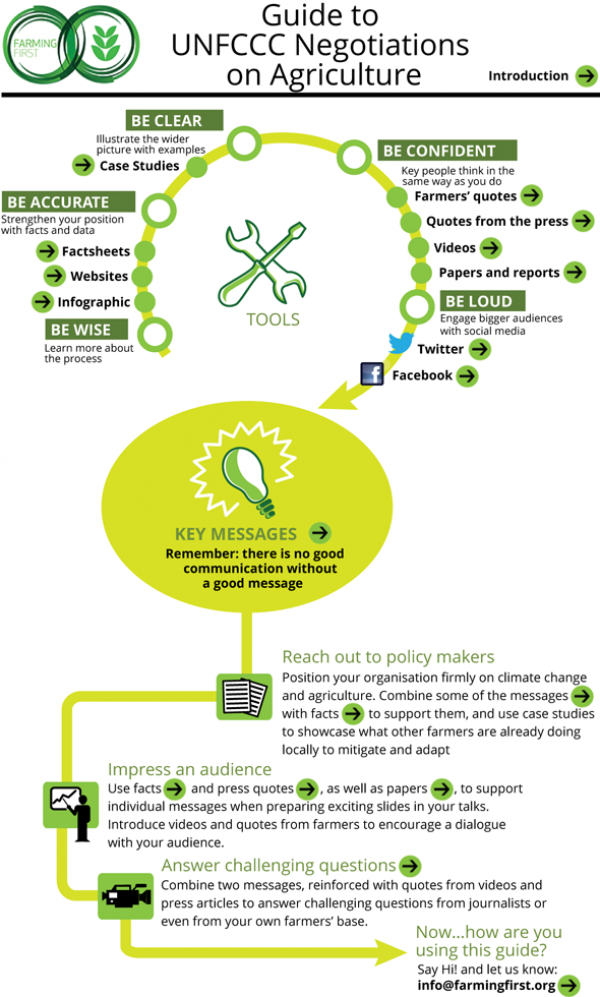New toolkit for advancing agriculture in UNFCCC negotiations

As climate negotiations gather momentum, it is not too late to take action on agriculture, the sector that can ensure our future food security and play a key role in adapting to climate change and mitigate future greenhouse gas emissions.
For the latest knowledge on agriculture’s role in the UNFCCC to date, and clear guidance on engaging in Bonn and Paris climate talks, I’m pleased to share the newly updated guide by Farming First, the CGIAR Research Program on Climate Change, Agriculture and Food Security (CCAFS) and CTA: http://bit.ly/ff-unfccc
The “Guide to Negotiations on Agriculture and Climate Change” sets out clear evidence for agriculture’s importance to national economies, food security, adaptation and mitigation. For example:
- To meet global food demand by 2050, agricultural production must increase by 60%.
- Agriculture makes the greatest contribution to total food system emissions—equivalent to 14–24% of total global emissions.
- 265 million people will face a 5% decrease in growing season in the next 40 years
- Every one US dollar invested in anticipatory measures for climate adaptation initiatives is estimated to save up to 7 US dollars in future relief costs.
Whether you’re a seasoned veteran or a newcomer, the new toolkit features a host of material to help you incorporate agriculture into your country’s action plan, including:
- Key messages tailored both to the UNFCCC process in general and the Bonn Climate Change Conference more specifically
- An updated overview of agriculture & the UNFCCC, detailing the ways in which agriculture is being brought into discussions under the Subsidiary Body on Scientific and Technological Advice (SBSTA), the Ad Hoc Working Group on the Durban Platform for Action and the Conferences of the Parties (COP)
- Frequently Asked Questions which can help guide answers to difficult questions posed at the negotiating table
- Factsheets with key statistics to communicate the challenges and opportunities related to agriculture and climate change
- Websites, infographics, briefs & papers with further information on all topics discussed in the toolkit, bringing the issues to life

Facebook comments